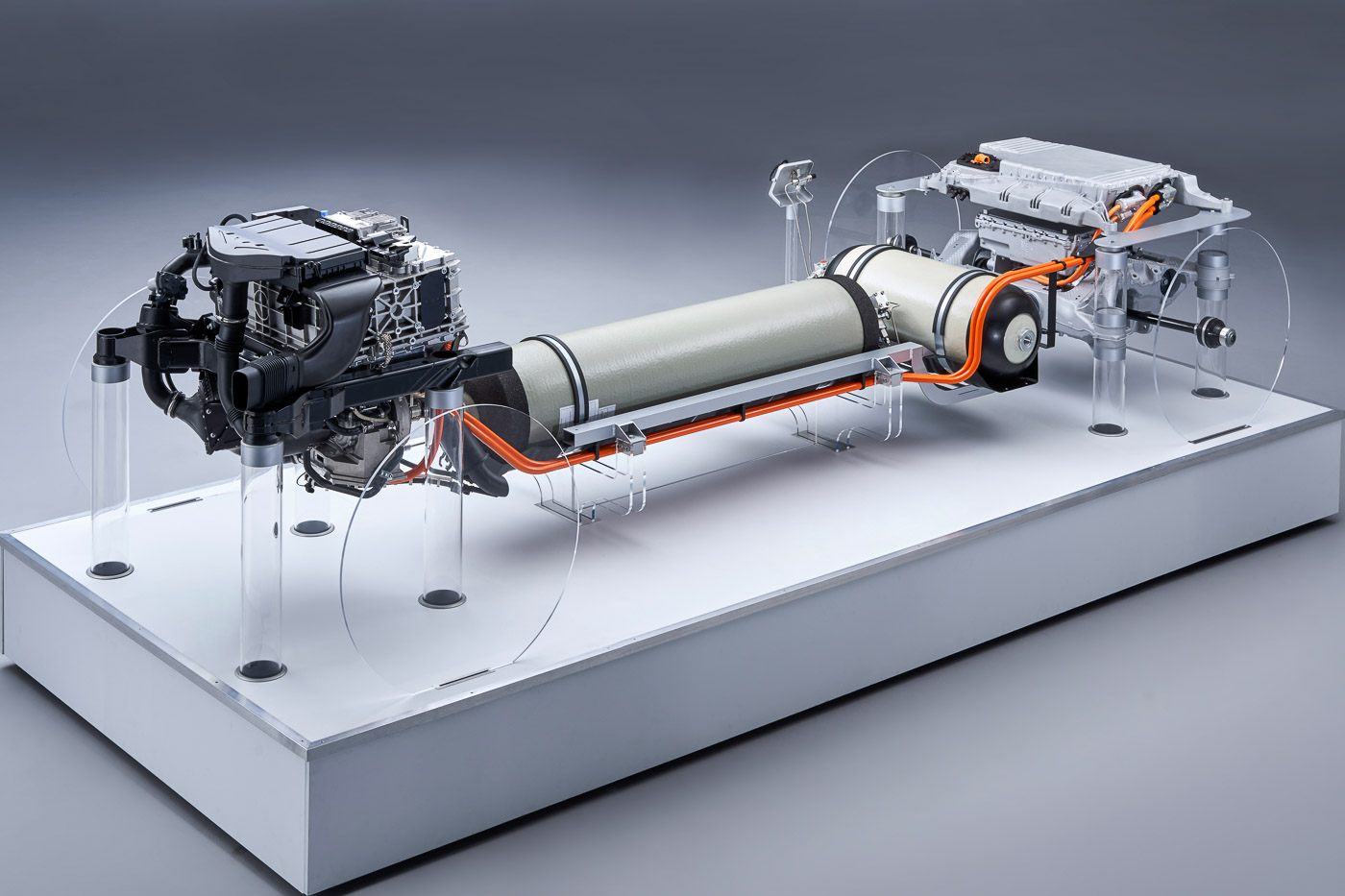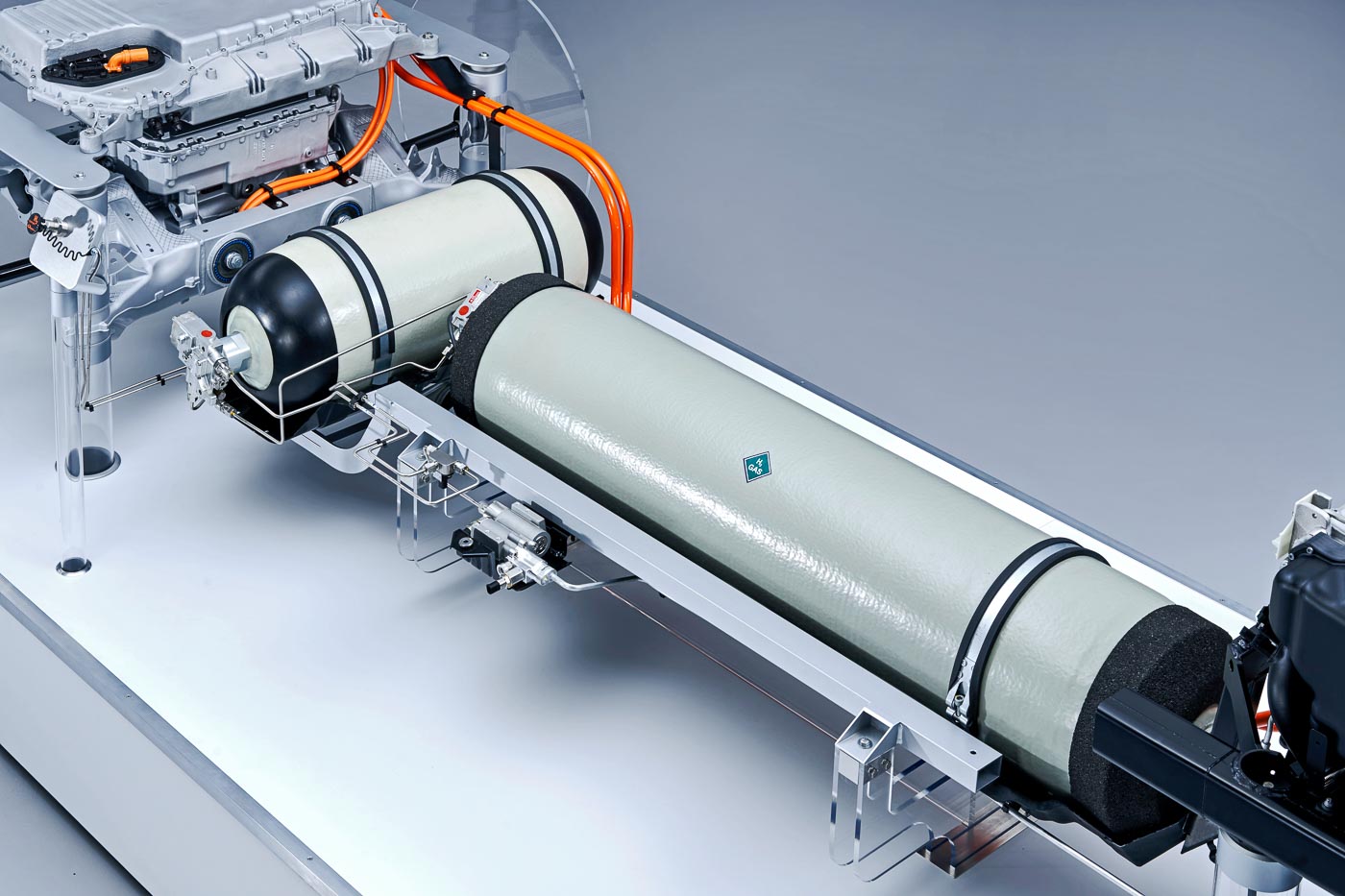BMW has a development partnership with Toyota that dates all the way back to 2013 for the development of hydrogen fuel cell powertrains. After near seven years of development, the German carmaker is finally happy to present its first hydrogen fuel cell powertrain.
BMW says that it is convinced that various alternative powertrains will coexist alongside each other, as there isn’t a single solution that can cater to the full spectrum of mobility requirements worldwide.
BMW board member for research and development, Klaus Fröhlich said, “The hydrogen fuel cell technology could quite feasibly become the fourth pillar of our powertrain portfolio in the long term.”
The fuel cell system in the powertrain is capable supplying up to 125 kW (170 hp) of electrical power to the motor. Hydrogen is supplied by a pair of 700 bar tanks, together holding six kilograms of hydrogen.
According to BMW Group Vice President of Hydrogen Fuel Cell Technology and Vehicle Projects, Jürgen Guldner, the tanks “guarantees a long range regardless of the weather conditions”, and refuelling should only take three to four minutes.

The hydrogen system is paired to a small battery pack, which BMW calls the ‘peak power battery’. The battery pack provides an additional boost of power during hard acceleration, bringing the total system output up to 275 kW (374 hp) when needed.
The electrical power from the hydrogen fuel cell and battery are then fed through BMW’s fifth-generation e-Drive power unit, which is set to make its debut at the forthcoming BMW iX3.

BMW will be producing a small-scale series in 2022 based on a modified BMW X5 as a pilot of the hydrogen technology. However, the company also says that “it will be some time” before a customer offer model with this technology will be made available – 2025 at the earliest.
The company cites the lack of requisite infrastructure, such as extensive hydrogen filling station networks, as well as the lack of production of hydrogen – both in sufficient quantities and at competitive prices, using green electricity.
However, that does not mean that BMW will hold off on its development of the technology. Until the infrastructure and sustainably-produced hydrogen supply are in place, the company will be working on substantially reducing the cost of manufacturing the powertrain system.
IMAGE GALLERY











